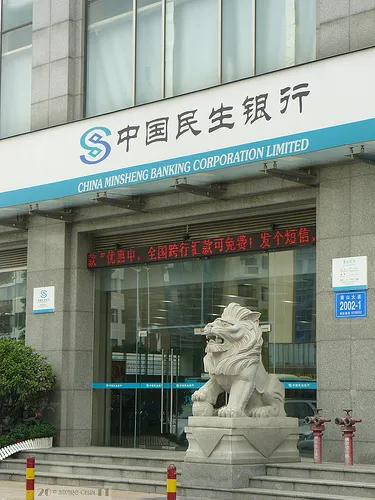
Check out which banks are likely to bear the brunt of PBoC's tighter liquidity policy
Small, medium banks most vulnerable to the liquidity squeeze.
BBVA recently projected that the interbank cash squeeze in place since June 6 would continue to ease in the coming days. This was based on a statement by the PBoC on Tuesday that it would stabilize the market through liquidity injections.
Here's more from BBVA:
As such, and given risks to already slowing economic growth if interbank volatility were allowed to persist, we anticipated that interbank rates would soon stabilize, albeit at somewhat higher levels than the 3-4% range prevailing prior to the squeeze. Indeed, volatility in short-term interbank rates has decreased and interest rate levels have declined to around 5% off the double-digit highs of last week.
The question now is which banks are likely to feel the brunt of the PBoC’s tighter liquidity policy, aimed at curbing the growth of shadow bank and other risky lending practices? And does tighter liquidity pose broader risks to the financial system?
• Small- and medium-sized banks (SMBs) are most vulnerable to the liquidity squeeze, as they have typically had difficulty in raising sufficient deposits, due in large part to the deposit rate cap.
They therefore tend to rely on the interbank market as a source of funding. In contrast, the largest 5 banks have surplus liquidity and tend to be structural lenders in the interbank market.
For example, China Industrial Bank (CIB) and China Minsheng Bank (CMBC), ranked seventh and ninth in the banking system by total assets, respectively, fund 24% of their assets through the interbank market, compared to only 3-4% for other listed banks.
• Banks that rely heavily on the interbank market account for a relatively small share of the banking system assets (for example, taken together CIB and CMBC account for 4.7% of total assets of the banking sector, and are probably not on the authorities’ list of Systemically Important Banks (SIBs).
Nevertheless, they are big enough to generate ripple effects on the broader financial system.
• Based on the PBoC’s statement from Tuesday, we expect the central bank to relax its restrictive policy in order to prevent banks, even small ones, from encountering severe liquidity problems that could otherwise undermine financial system stability.
It should be kept in mind that the recent liquidity squeeze has been induced by the PBoC itself, and in the statement issued on Tuesday – which has been interpreted by market participants as a partial reversal of the PBoC’s tight liquidity policy – the central bank pledged to provide liquidity to financial institutions as needed to maintain stability in the interbank market.
They have confirmed they have provided such liquidity in recent days to unspecified banks, and markets have reacted positively.












 Advertise
Advertise










